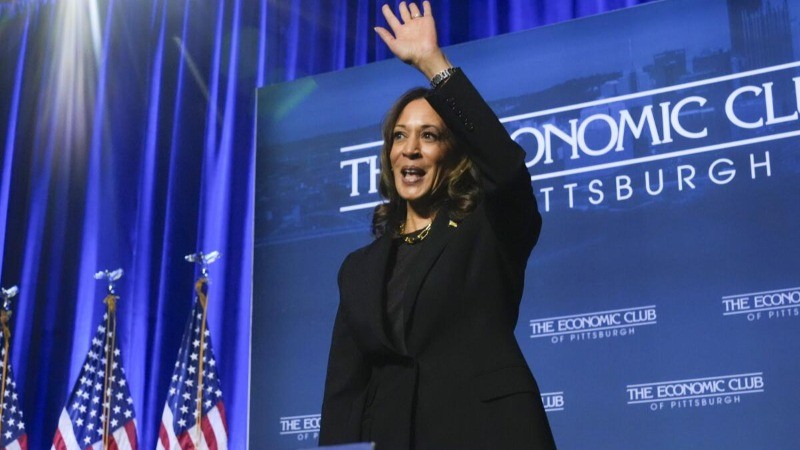
In a bid to strengthen her economic message, U.S. Vice President Kamala Harris promised to foster new investments in domestic manufacturing across various industries if elected to the White House in November. During a speech in Pennsylvania, a crucial state for her campaign, she positioned herself as "a capitalist" dedicated to enhancing the middle class.
Just before her address, her Republican opponent, Donald Trump, promoted his economic plans in North Carolina, which include a proposed 15% tax on American-made products. As both candidates campaign in key states this week, the economy remains a top priority for voters as they prepare to cast their ballots.
In response to Republican assertions labeling her as a supporter of "communist" policies, Harris reaffirmed her capitalist stance. "I promise you I will be pragmatic in my approach," she said at an event organized by The Economic Club of Pittsburgh.
Harris expanded on her vision for an "opportunity economy," presenting new proposals aimed at supporting young families, first-time homebuyers, and the elderly, with plans for $100 billion in tax breaks and financial incentives. She also emphasized the need for increased investments in artificial intelligence, aerospace, and energy development.
However, she insisted that tax rates for large corporations and the wealthiest Americans should rise to ensure they "pay their fair share." Additionally, she pledged to streamline permitting processes to expedite construction projects, remove college degree requirements for federal jobs, and enhance union apprenticeship programs if she wins the election.
“I intend to chart a new way forward and grow America’s middle class,” Harris argued, contrasting her vision with Trump’s, whom she accused of having “no intention to grow our middle class,” focusing instead on benefitting himself and his wealthy associates.
In her first significant solo interview with MSNBC, Harris criticized Trump, stating he "isn't very serious" about his tariff proposals and claimed he "constantly got played by China." She cautioned against indiscriminate tariff impositions, asserting, "He’s just not serious about very many of these issues."
Harris also addressed claims from the Trump campaign about her previous job at McDonald's during her university years. "Part of the reason I even talk about having worked at McDonald's is because there are people who work at McDonald's in our country who are trying to raise a family," she explained. "I worked there as a student."
As she seeks to close the gap on Trump’s perceived advantage in economic management, Harris has gained a slight lead in recent national polls following their earlier debate.
At a campaign rally in Mint Hill, North Carolina, Trump defended his tariff strategies, stating they were crucial in making foreign countries hesitant toward him. He reminded supporters of the significant corporate tax cut he enacted during his presidency, reducing the rate from 35% to 21%. He claimed that his second term would center on a "manufacturing renaissance" supported by his proposed 15% tax on American-made products.
The economy is anticipated to be a central issue for voters this November, with both candidates advocating populist policies. In her discussion with MSNBC, Harris stated, "Donald Trump has a history of taking care of rich people," emphasizing that while she has no issue with wealth, those who are rich should contribute their fair share. She concluded, "My perspective on the economy is when you grow the middle class, America’s economy is stronger, and there’s empirical evidence to prove my point correct."